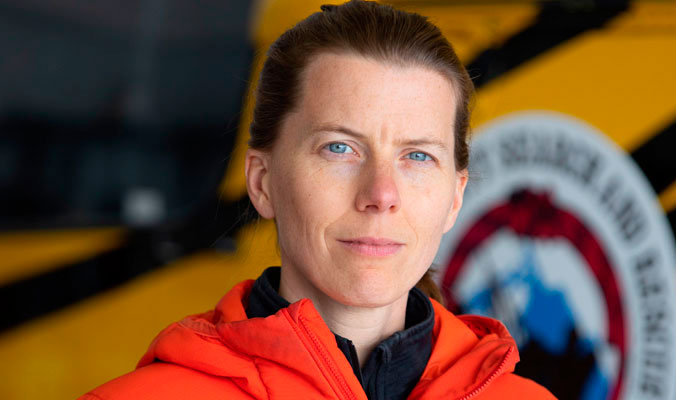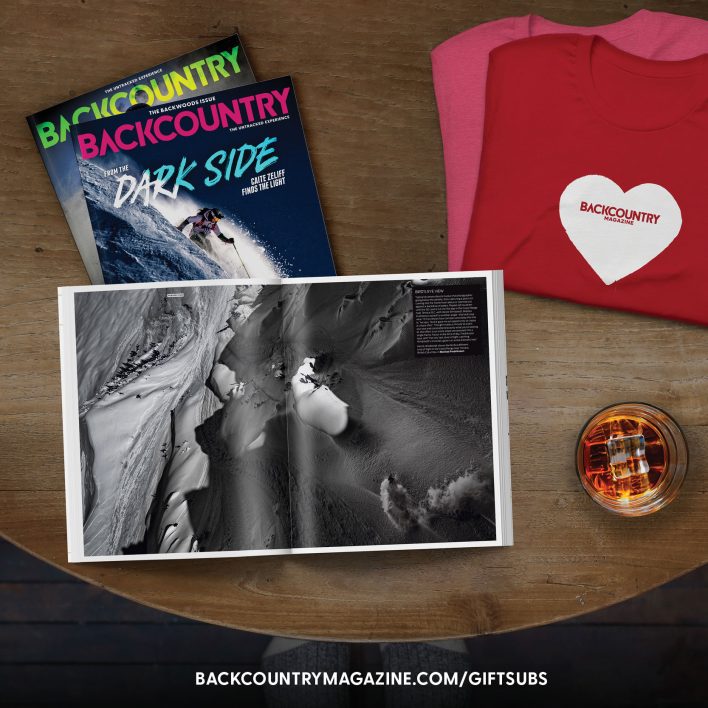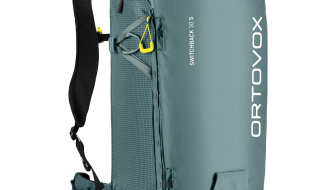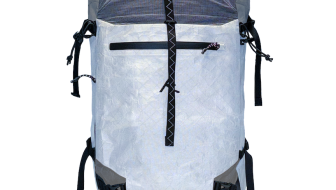In 2006, Jess King, 40, began volunteering with Teton County Search and Rescue as a way to give back to the Jackson Hole, Wyo. community. She remained on the volunteer team until 2013, when a search and rescue coordinator position opened up with the county’s sheriff office. King applied and got the job, and since then has been coordinating rescues, working with other public agencies, like the National Park Service, and helping Teton SAR promote education throughout the county. And through the tough calls and the trauma associated with working in the field, a strong support system keeps King coming back for more.

On an average day, I do a lot of admin work, keeping our operational plans and training plans up to date and working with other agencies, like [the National Park Service] and the Forest Service. We really depend on each other with so much public land here in Jackson; working with other public agencies is a huge part of my job. We get about 70 to 100 calls per year, so every few days my work gets interrupted with a call, but I definitely don’t have those every single day.
If you were to call 911, it would go to our sheriff’s office’s dispatch center. As soon as they realize you’re in the backcountry and need help, they send a page to the Teton Search and Rescue advisory board, which is a small group of volunteers and myself. We get on a conference call and make a plan as to whether the whole team needs to be engaged or if we need to sort out some more details first. If we decide we need to page the search and rescue team, then we send a page to the whole team. They get a text on their phones, and everyone will come to the hangar, which is our main search and recue base here in Jackson. We get the rescue organized from there and send people out into the field to take care of the mission.
In Jackson, we’ve got everything but an ocean. I’d say our most common [early season mistake] is related to early season snowpack, avalanches or people being out too late or stuck in the dark or getting lost in a snowstorm. Or, they hit a rock and tear a knee just because the snowpack is so shallow.
I wouldn’t say there’s a theme in poor decision-making. I think everyone’s tolerance for what the backcountry throws at him or her is different, so my perspective is that it’s all relative to what you can handle. Some people can get buried by an avalanche, dig themselves out and crawl to a car and survive, and other people might twist their ankle and want search and rescue to come get them. I try not to place any judgment on anyone’s decision-making.
Here at Teton Search and Rescue, we have a pretty robust education program and try to educate our community on the best things you can do to take care of yourselves, if you are injured, how to get in touch with SAR. That’s what’s really important to us—to try to empower our community to take care of themselves and, if they can’t, to know how to get ahold of us to help them out.
I’d like to say [working at Teton SAR] hasn’t changed how I tour, but for me, personally, seeing so much trauma and death, I’m way more conservative than I used to be. I really don’t go out on dangerous days, and I’m definitely wary of grizzly bears, so I don’t push the envelope. I’ve found a lot of happiness in putting on my running shoes and going for a run with my husband, and I don’t wear headphones in the backcountry anymore. This all might be because I’m 40 years old now, but I think seeing enough trauma definitely makes me wary. Life’s too short; I just don’t want that to happen to myself or to my family.
The team that I get to work with is made up of pretty much the greatest humans in the world. They’re just fun, humble—they’re like my second family. So absolutely what keeps me coming back to work is the team. Helping the community is obviously a big part of my job and why I like to do it. When you save someone’s life and then see them walking around town years later, you never forget that.
Being on call 24/7 has its challenges, as does so much exposure to death and trauma. That’s a pretty hot topic in the rescue world right now—psychological first aid and mental resilience to the trauma we see and the high-paced nature of a call. Having a really strong team and strong family network allow me to keep doing it year after year. I’d say about three years ago Teton County SAR really decided to start taking the mental health of its responders seriously and created a support program here in Teton County. We’ve noticed since then that emotional first aid has just been a hot topic everywhere we go—every conference somebody is doing a training on it and how important it is—which is awesome. It’s long overdue.










Related posts:
Evan Stevens’s Shared Knowledge
The Snow Pro: Janelle Smiley talks the art of efficiency
Deep Threads: Eight essentials for powder-day touring
The Skills Guide: Four steps for Blissful Ascents